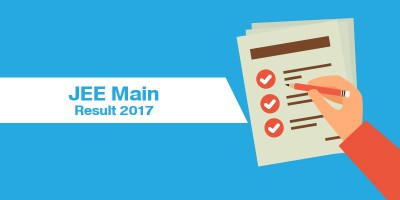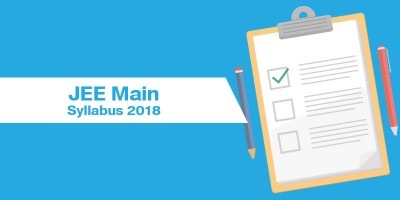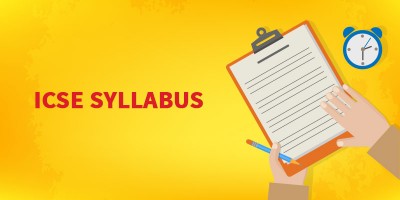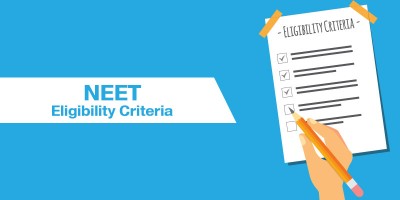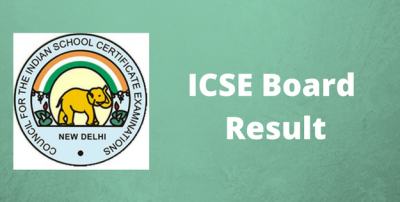State Board Commerce (XI-XII) - Test Papers
JEE Main Result 2017
CBSE has been announced the result of JEE Main 2017 on April 27. All of the applicants who participate in the engineering entrance examination can access their result in online mode. The scores of the applicants has been published in JEE Main 2017 result. The status of those applicants who have qualified for the second stage examination i.e, JEE Advanced 2017 for IIT admissions, will also be released. The applicants are to note that the results will not be sent to them individually.
Step-by-step guide
To check your results, click on jeemain.nic.in and cbseresults.nic.in
Enter your roll number/ registration number in the space provided
Click to submit and get your results
Important things to note
Candidates will get marks for Paper 1 and status of candidates qualifying for JEE (Advanced). The rank will comprise All India Rank (AIR) and All India category rank.
Score or rank card will be not be sent personally to candidates.
JEE Main Syllabus 2018
JEE Main Syllabus 2018 gives details of the topics and chapters covered for section-wise weightage of JEE Main 2018 paper. JEE Main 2018 syllabus will be announced by CBSE. With the help of JEE Main syllabus 2018, the aspiring candidates will have a clear understanding on what to study and what to avoid. JEE Main 2018 syllabus helps aspirants in preparing for the entrance exam in an organized manner. The syllabus of JEE Main 2018 contains topics from Physics, Mathematics and Chemistry for Paper 1 and topics from Mathematics, Aptitude and Drawing for Paper II. To know more details about JEE Main syllabus 2018, read through the article below.
JEE Main 2018 syllabus for Physics
Section A
- Physics and measurement
- Kinematics
- Laws of motion
- Work, energy and power
- Rotational motion
- Gravitation
- Properties of solids and liquids
- Thermodynamics
- Kinetic theory of gases
- Oscillations and waves
- Electrostatics
- Current electricity
- Magnetic effects of current and magnetism
- Electromagnetic induction and alternating currents
- Electromagnetic waves
- Optics
- Dual nature of matter and radiation
- Atoms and nuclei
- Electronic devices
- Communication systems
Section B
- Experimentalsicilis
JEE Main Syllabus 2018 for Chemistry
Section a – physical chemistry
- Some basic concepts in chemistry
- States of matter
- Atomic structure
- Chemical bonding and molecular structure
- Chemical thermodynamics
- Solutions
- Equilibrium
- Redox reactions and electrochemistry
- Chemical kinetics
- Surface chemistry
Section B – Inorganic Chemistry
- Classification of elements and periodicity in properties
- General principles and processes of isolation of metals
- Hydrogen
- Block elements (alkali and alkaline earth metals)
- Block elements group 13 to group 18 elements
- D – and f – block elements
- Co-ordination compounds
- Environmental chemistry
Section C – Organic Chemistry
- Purification and characterisation of organic compounds
- Some basic principles of organic chemistry
- Hydrocarbons
- Organic compounds containing halogens
- Organic compounds containing oxygen
- Organic compounds containing nitrogen
- Polymers
- Biomolecules
- Chemistry in everyday life
- Principles related to practical chemistry
JEE Main Syllabus 2018 for Mathematics
- Sets, relations and functions
- Complex numbers and quadratic equations
- Matrices and determinants
- Permutations and combinations
- Mathematical induction
- Binomial theorem and its simple applications
- Sequences and series
- Lbw, continuity and differentiability
- Integral calculus
- Differential equations
- Co-ordinate geometry
- Three dimensional geometry
- Vector algebra
- Statistics and probability
- Trigonometry
- Mathematical reasoning
JEE Main 2018 Syllabus for Paper II (Aptitude Test B. Arch and B. Planning)
Part – I
Awareness of persons, places, Buildings, Materials.) Objects, Texture related to Architecture and build—environment. Visualising three dimensional objects from two dimensional drawings. Visualising. different sides of three dimensional objects. Analytical Reasoning Mental Ability (Visual, Numerical and Verbal).
Part – II
Three dimensional – perception: Understanding and appreciation of scale and proportion of objects, building forms and elements, colour texture, harmony and contrast. Design and drawing of geometrical or abstract shapes and patterns in pencil. Transformation of forms both 2 D and 3 D union, substraction, rotation, development of surfaces and volumes, Generation of Plan, elevations and 3 D views of objects. Creating two dimensional and three dimensional compositions using given shapes and forms.
Sketching of scenes and activities from memory of urban scape (public space, market, festivals, street scenes, monuments, recreational spaces etc.), landscape (river fronts, jungles. gardens, trees, plants etc.) and rural life.
Note: Candidates are advised to bring pencils, own geometry box set, erasers and colour pencils and crayons for the Aptitude Test.
CBSE Syllabus
CBSE Syllabus is the list of topics and subtopics to be covered in the course of study during an academic year. CBSE syllabus includes the summary and gist of content to be gone through during teaching and learning process in a particular grade or class. CBSE issues syllabus booklets for classes 9, 10, 11 and 12. This curriculum is revised every year. For classes 1-8, CBSE does not provide exact content in terms of syllabus but suggests some common components to be followed as given in NCF-2005 and guidelines issues by NCERT. CBSE syllabus for summative assessments, formative assessments and annual examinations with question paper pattern and scheme of examination is given here for free download.
It is important to know the syllabus before starting the preparation. So, keeping that in mind we provide an elaborate view of the syllabus along with an interesting article about each topic. This helps students to understand what the topic is about and gives them clear idea on what they are going to read.
Have a look at the CBSE syllabus below, read what all topics you have to cover from each lesson and start your preparation accordingly. Also, know the marking scheme for each topic and focus more on the topics which are allocated more marks.
Download latest CBSE syllabus and curriculum document in PDF format. Here are the download links for CBSE syllabus for current session :
Related Link
ICSE Syllabus
ICSE Syllabus is extremely comprehensive and thorough. Great emphasis is laid on the learning of science, humanities and language. Although the volume of the syllabus is something students often complain about during school days, it really helps them cope up with higher education and competitive preparation later in life.
ICSE Syllabus focuses on the child’s overall growth and aims to build analytical skills along with practical knowledge. It provides detailed study of each subject with an edge over english. ICSE curriculum allows the flexibility of selecting specific subjects. ICSE syllabus provides required knowledge to attempt all the national entrance exams.
The main objective of ICSE Board is to provide students a standard education platform where they can get all round development in all respects. Following syllabus is prepared in order to achieve its objective.
The ICSE Syllabus Is Divided Into Three Groups
Group I (Compulsory Subjects) – English, History, Civics & Geography, and Indian Language
Group II (Option to select any two) – Mathematics, Science (Physics, Biology, Chemistry) as separate subjects, Environmental Science, Computer Science, Agricultural Science, Commercial Studies, Technical Drawing, A Modern Foreign Language, A Classical Language and Economics
Group III (Any one) – Computer Applications, Economic Applications, Commercial Applications, Art, Performing Arts, Home Science, Cookery, Fashion Designing, Physical Education, Technical Drawing Applications, Yoga, and Environmental Applications.
As ICSE attributes great importance to practical learning, all subjects have assignment/project and/or laboratory components. These components are evaluated internally and carry a weightage of 20% in group I and II and 50% in group III subjects.
Many of the subjects mentioned above can contain up to three papers. For example, science consists of three papers, one each for Physics, Chemistry and Mathematics. Depending on the subject selection, a student might have to appear for anywhere between 8 to 11 papers. The final score is calculated by taking the best 5 scores from amongst the subjects with English being compulsory.
NEET 2017 Eligibility
What is NEET?
NEET (National Eligibility cum Entrance Test) is a qualifying entrance test conducted pan-India for students aspiring to pursue any medical courses at the graduate level like MBBS and BDS and also for some postgraduate courses in few selected medical colleges in India. For the graduate level courses, students passing out of grade XII school or equivalent from the Science Stream (with PCB combination) can appear for this test.
Eligibility Criteria
Students should meet the eligibility criteria before applying:
- Minimum Age: Students should have completed the age of 17 years as or on 31st December of the year of admission.
- Maximum Age: Maximum age limit is 25 years as or on 31st December of the year of admission. The reserved categories will be provided the relaxation of five years.
- Passed/Appeared: Students must have passed or appearing in the 12th or equivalent exam with Physics, Chemistry and Biology subjects.
- Citizenship: Indian citizen and OCI candidates can apply for this exam.
- Aadhaar Card: Aadhaar card is mandatory for all candidates except belonging to Assam, J&K and Meghalaya state.
Minimum Percentage in 10+2 or HSC for NEET 2017
| Category | Marks in 10+2 or HSC examination |
| General | 50% |
| SC/ST/OBC | 40% |
| PH/PWD | 45% |
NEET Eligibility Criteria for State Seats Quota
It should be noted that around 85% of MBBS/BDS seats would be reserved for states counseling and the rest 15% seats would be allotted for ALL India Counseling at the central level. Candidates hence have to fulfill the following criteria:-
- Candidates should be the resident of the respective state.
- Candidates should have a proof of their residency.
- Candidate should have completed or pursuing their schooling (XII) from the state.
Eligibility for All India Quota Seats in NEET
- Candidates have to be a citizen of the country.
- Candidates should be at least have an age of 18 years.
- The upper age limit for the general category would be 25 years, and for SC/ST there is a relaxation of 5 years.
- For candidates hailing from Andhra Pradesh, Telangana and Jammu & Kashmir, they would be eligible for admission only in the Armed Forces Medical College (AFMC) Pune.
From the above discussion, you might have gathered a rough idea on how the authorities have framed the eligibility criteria for NEET exam. For further details, it is advisable that you refer the CBSE’s site for NEET exam in case of additional clarifications.
ICSE Results 2017 to be declared by the third week of May
Council for the Indian School Certification Examination (CISCE) is likely to declare Indian Certificate of Secondary Education (ICSE) Class X Exam 2017 Result by third week of May. ICSE Class 10th Exams 2017 commenced on March 10 with English paper and ended on April 21 with Environmental Science (Group II) Elective paper.
The ICSE board exams 2017 are over and the Council for the Indian School Certification Examination (CISCE) has started the evaluation process. The Class X Exam 2016 and Class XII Exam 2016 results were declared on May 6. This year, the result might be delayed due to assembly polls in five states.
The Council for the Indian School Certification Examination (CISCE) will declare the results of ICSE board exams 2017 soon. Students should visit the official website of Council for the Indian School Certification Examination (CISCE) regularly for the updates related to the result. The result is awaiting and is expected to be released by the board by the mid of May.



